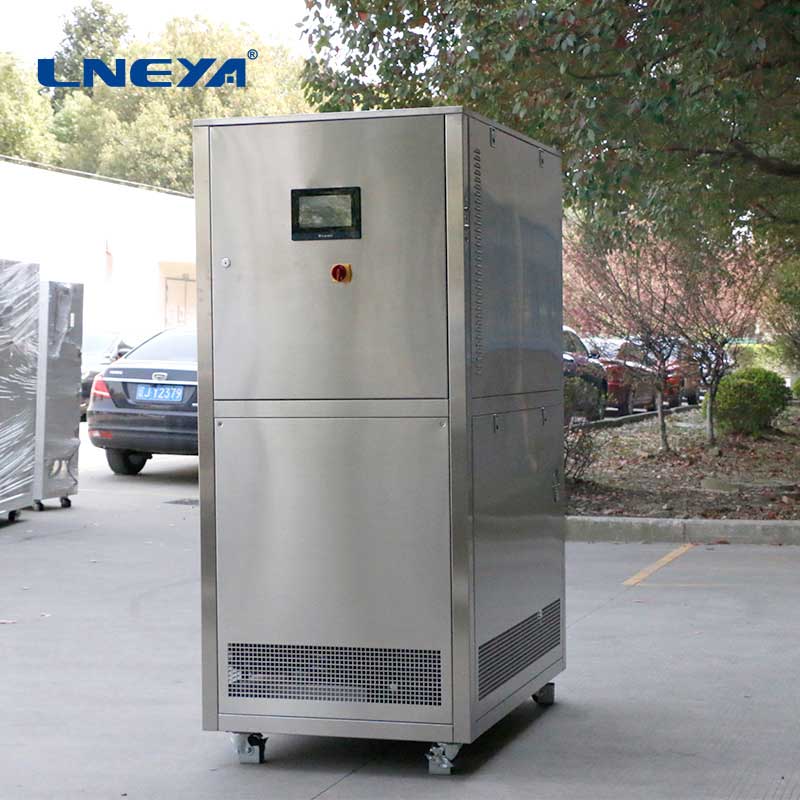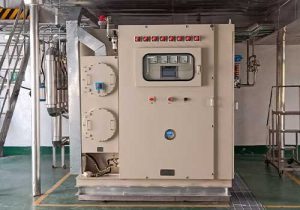pro chiller glycol
Pro Chiller Glycol: A Comprehensive Guide
In the realm of industrial cooling solutions, pro chiller glycol systems have emerged as reliable and efficient options for a wide range of applications. These advanced chillers, which utilize glycol – water mixtures as heat – transfer media, offer enhanced performance and versatility compared to traditional cooling systems.

Working Principle
The operation of pro chiller glycol systems is based on the principles of the refrigeration cycle, with glycol playing a crucial role in optimizing heat transfer and providing freeze protection. Glycol, typically ethylene glycol or propylene glycol, is mixed with water to lower the freezing point of the solution. This property makes pro chiller glycol systems suitable for applications where temperatures may drop below the freezing point of pure water.
The refrigeration cycle begins with the compressor, which raises the pressure and temperature of the refrigerant gas. The high – pressure, high – temperature refrigerant then flows to the condenser. In air – cooled pro chiller glycol systems, heat is dissipated to the ambient air through fans, while in water – cooled systems, heat is transferred to a water source, such as a cooling tower or a municipal water supply. As a result, the refrigerant condenses into a liquid.
The liquid refrigerant then passes through an expansion valve, where a sudden pressure drop causes it to evaporate and cool down significantly. The cold refrigerant enters the evaporator, where it absorbs heat from the glycol – water mixture, cooling the solution. The now – warmed refrigerant is drawn back into the compressor to repeat the cycle. The cooled glycol – water mixture is then pumped through the system to the point of use, absorbing heat from the industrial process or equipment and maintaining the desired temperature.
Applications
Manufacturing Industry
In the manufacturing sector, pro chiller glycol systems are widely used to cool various processes and equipment. For example, in metalworking, they cool cutting fluids, which lubricate cutting tools, remove heat generated during machining, and flush away metal chips. This improves tool performance, extends tool life, and enhances the surface finish of machined parts. In plastic manufacturing, pro chiller glycol systems cool injection molding machines, ensuring proper solidification of plastic and dimensional accuracy of the molded products. They are also essential in electronics manufacturing, where precise temperature control is required for semiconductor fabrication and printed circuit board assembly.
Food and Beverage Industry
The food and beverage industry relies on pro chiller glycol systems to maintain the quality and safety of products. In food processing plants, these chillers are used for cooling and freezing food items, such as meat, fruits, and vegetables, to extend their shelf life. Glycol – based cooling systems are preferred in some applications because glycol is non – toxic (especially propylene glycol), minimizing the risk of product contamination in case of leaks. In the beverage industry, pro chiller glycol systems cool ingredients during production and maintain the cold chain for storage and distribution, ensuring the taste and quality of beverages.
Pharmaceutical Industry
The pharmaceutical industry has strict requirements for temperature control, and pro chiller glycol systems play a vital role in meeting these demands. In laboratories, they cool equipment like centrifuges and incubators, ensuring accurate experimental results. During pharmaceutical manufacturing, pro chiller glycol systems maintain the precise temperatures required for drug synthesis and formulation, safeguarding the integrity of active ingredients. They are also crucial for maintaining the cold chain in the storage and transportation of temperature – sensitive medications, vaccines, and biological products.

Selection Criteria
Cooling Capacity
Determining the appropriate cooling capacity is one of the most critical factors when choosing a pro chiller glycol system. The cooling capacity, usually rated in British Thermal Units per hour (BTU/h) or tons of refrigeration (TR), must match the heat load of the application. Factors such as the power consumption of the equipment to be cooled, the number of processes running simultaneously, the ambient temperature, and the desired chilled fluid temperature need to be carefully considered. An undersized chiller will not be able to maintain the required temperature, leading to inefficiencies and potential damage to the equipment, while an oversized chiller will result in higher energy consumption and unnecessary costs.
Energy Efficiency
Energy efficiency is an important consideration for the long – term operation of pro chiller glycol systems. Look for chillers with high – efficiency compressors, advanced heat exchanger designs, and variable – speed drives. High – efficiency compressors consume less energy while providing the same cooling output. Advanced heat exchangers improve the heat transfer process, reducing energy losses. Variable – speed drives allow the chiller to adjust its cooling capacity based on the actual load, optimizing energy consumption. Comparing the energy efficiency ratings, such as the coefficient of performance (COP), of different models can help in making an informed decision.
Fluid Compatibility and Management
Since glycol is the heat – transfer medium, it is essential to ensure that the pro chiller glycol system is compatible with the chosen type of glycol (ethylene glycol or propylene glycol). Different glycols have different properties, such as freezing point depression and viscosity, which can affect the performance of the chiller. Regular monitoring of the glycol – water mixture’s level and concentration is necessary. Over time, the glycol solution may evaporate or become diluted, affecting its freezing point and cooling performance. Check for leaks in the glycol circuit regularly, as a leak can lead to a loss of coolant, reduced cooling efficiency, and potential damage to the equipment.
Installation and Maintenance Requirements
Consider the installation requirements of the pro chiller glycol system, including the available space, ventilation, electrical supply, and access to water (for water – cooled models). Some chillers may require specific foundations or additional equipment for proper installation. Additionally, regular maintenance is crucial for the optimal performance and longevity of the chiller. Look for manufacturers or suppliers who offer comprehensive maintenance services, including routine inspections, cleaning, and component replacement. Consider the availability of spare parts and the response time of the service team in case of breakdowns.
Maintenance Protocols
Regular Fluid Checks

Regularly monitor the level and concentration of the glycol – water mixture. Use a refractometer or other appropriate testing methods to measure the glycol concentration. A decrease in glycol concentration can increase the risk of freezing in low – temperature applications. Check the fluid level regularly and top up if necessary. Inspect the glycol circuit for any signs of leakage, such as wet spots, drips, or changes in fluid levels. If a leak is detected, repair it immediately to prevent further coolant loss and potential damage to the system.
Component Inspection and Cleaning
Periodically inspect the key components of the pro chiller glycol system, including the compressor, condenser, evaporator, and pumps. Check for signs of wear, damage, or abnormal vibrations. In air – cooled chillers, clean the condenser coils regularly to remove dirt, dust, and debris, which can reduce heat transfer efficiency. For water – cooled chillers, clean the condenser tubes and ensure the proper functioning of the cooling tower or heat exchanger. Replace filters and strainers in the glycol and refrigerant circuits as per the manufacturer’s recommendations to prevent clogging and maintain optimal performance.
Refrigerant and Lubricant Management
Closely monitor the refrigerant levels and pressure within the chiller. Low refrigerant levels may indicate a leak, which should be repaired promptly to avoid reduced cooling performance and potential damage to the compressor. Check the lubricant levels in the compressor and other moving parts regularly. Adequate lubrication is essential for the smooth operation and extended lifespan of these components. Follow the manufacturer’s maintenance schedule for lubricant replacement to ensure optimal functionality.
Comparative Analysis
When compared to traditional water – only chillers, pro chiller glycol systems offer significant advantages, especially in terms of freeze protection. Water – only chillers are prone to freezing in low – temperature environments, which can cause pipes to burst and equipment to malfunction. Pro chiller glycol systems, with their lower – freezing – point mixtures, can operate reliably in sub – zero conditions.
In contrast to smaller – capacity glycol chillers, pro chiller glycol systems are designed for more demanding applications. They typically offer higher cooling capacities, more advanced control systems, and greater durability. However, they also come with a higher initial cost and may require more complex installation and maintenance.
In conclusion, pro chiller glycol systems are a valuable asset in various industries, providing efficient and reliable cooling solutions. By understanding their working principle, applications, selection criteria, maintenance requirements, and comparative advantages, users can make informed decisions and ensure the optimal performance of these chillers in their operations.
Related recommendations
coil heaters
395Coil Heaters: A Comprehensive GuideCoil heaters are versatile heating devices widely used in numerous industrial, commercial, and even some residential applications. These heaters are designed to...
View details40 ton water cooled chiller
86240 Ton Water-Cooled Chiller: High-Capacity Cooling Solutions A 40-ton water-cooled chiller is an essential piece of equipment for large commercial buildings, data centers, and industrial proces...
View detailscool and heat
578The Dynamics of Cool and Heat: Understanding Thermal Exchange The interplay of cool and heat is a fundamental aspect of our physical world, governing the behavior of matter and energy in variou...
View detailsAdvantages of Refrigeration Heating Systems
1406Advantages of Refrigeration Heating Systems The main function of the refrigeration heating system is to control the temperature by heating and cooling, and maintain the temperature stability...
View details
 LNEYA Chiller
LNEYA Chiller






HelloPlease log in